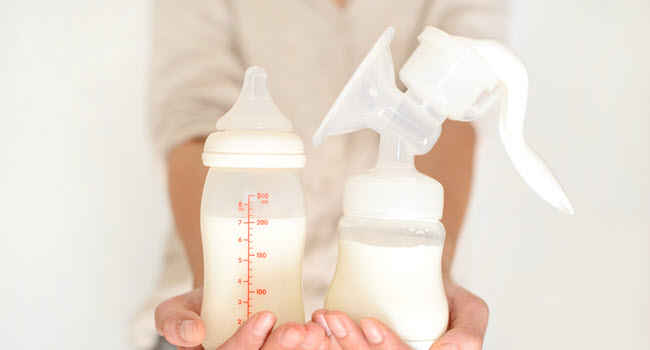
Advertisements
Whoever coined the term “Don’t cry over spilled milk” never knocked over a bottle of precious breast milk that has been painstakingly expressed from weary, swollen bosoms at 3 am.
Any mom who has ever struggled with her milk supply knows how much work and love go into each bottle of breast milk. Containing the perfect combination of calories and nutrition, human milk is perhaps the most magical liquid in the world. It is full of antibodies, fat, and protein to fight infection and help with babies’ brain development.
Unfortunately, not all moms are able to produce the milk their babies need at birth. In most cases, formula can serve as a passable substitute, but for at-risk infants, the specific benefits of breast milk are especially needed. Thankfully, many hospitals and communities now collect donated breast milk to feed these especially vulnerable babies.
The idea of feeding your baby with what is technically some other woman’s bodily fluids may seem a bit odd, but the milk is carefully pasteurized and screened for disease.
Advertisements
Babies that most benefit from donated breast milk:
- Premature babies – Our most vulnerable babies are those born early, before all their systems are fully developed. These tiny preemies are at risk for infection and need the immune boosting properties in breast milk.
- Babies of diabetic moms – Babies born to diabetic moms often have trouble controlling their own blood supplemented with formula, if their mom cannot produce milk as quickly as they need it. If donated breast milk is available, it can be used instead.
- Babies fighting infections – All babies in neonatal intensive care, but especially those fighting life-threatening illnesses can benefit from the added benefits of human milk.
- Adopted babies – While some adopted mothers are able to produce some breast milk by taking special hormones, the majority are not. Adopted parents are extremely thankful when they are able to use donated breast milk so their babies can get the many benefits of human milk.
Women who might consider donating breast milk:
- Women with excess supply – While some women struggle with their milk supply, others have to buy a second freezer to store their excess. For women who are lactationally blessed, donating their extra milk to a milk bank is a fantastic way to help babies in need.
- Women whose babies can’t drink their milk due to an allergy – Some women are in the frustrating situation of having an infant with a newly diagnosed food allergy and a stash of breast milk that their baby now can’t use.
- Women who have lost their baby – There is perhaps no greater pain for a mother than the loss of their child. Over the years, I have had a few patients who chose to give a beautifully selfless gift. After losing an infant, they have continued to pump their breast milk and donate to the local milk bank. This is not the path for everyone, but women I know who have done this found a sense of purpose in being able to help others through their loss.
If you would like to donate your breast milk, you can look for the nearest milk bank or donation site at The Human Milk Banking of North America website. These are nonprofit milk banks, and they are expensive to operate. So, sadly, many states do not have their own milk banks. If your state does not have a milk bank, you can donate to banks in other states. And if you want to support milk banks but don’t have excess breast milk, you can make a monetary donation instead.
Keep in mind that milk is usually not accepted from donors who:
- Smoke
- Drink alcohol daily
- Take certain Medications or herbal therapies
- Use illegal drugs
- Have HIV-positive sexual partners
Milk banks truly make a difference in the lives of our tiniest, most vulnerable babies. If you find yourself with extra breast milk, please consider contacting a milk bank and making a donation.
by Heather Rupe, DOBoard-certified OB/GYN


Comments